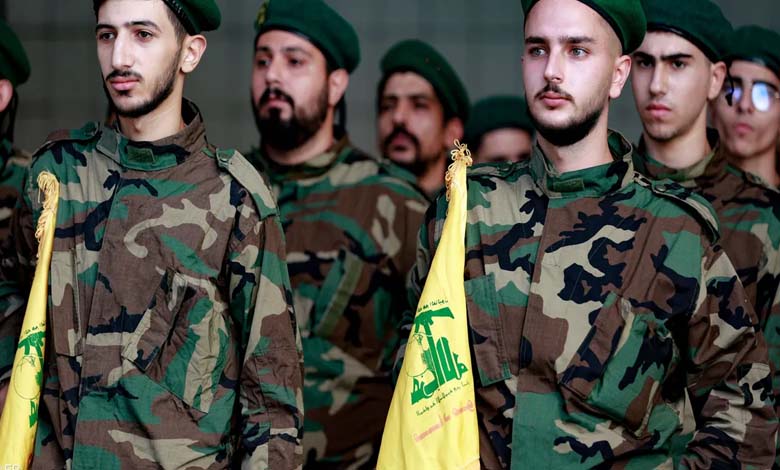The “Empire” of Smuggling and Gold: Why Lebanon Grows Poorer While Hezbollah Becomes Wealthier

Anyone observing Lebanon will see its economy in free fall, while Hezbollah grows richer, solidifying its financial arm, filled with dollars and gold, in the market.
-
Hezbollah’s Response to Chokr’s Assassination Eased Tensions
-
What Weapons Will Hezbollah Use in an Open War with Israel?
Lebanon, which recently appeared to be on the brink of war due to the escalation between Israel and Hezbollah, has been grappling with a financial crisis for five years. This crisis has plunged a country that was once one of the wealthiest in the region into extreme poverty, with the Lebanese pound losing 98% of its value.
The American magazine Foreign Policy questioned the extent of Lebanon’s economic collapse, whether Hezbollah‘s banks are faring better, and the role Israel plays in the country’s economy.
-
Washington Post reveals how Lebanese pay the price for Iranian threats and ongoing Hezbollah-Israel clashes
-
Hezbollah Bets on Tunnel Warfare in Confrontation with Israel
Commenting on the economic collapse that began in Lebanon in 2019, both financially and monetarily, Adam Tooze, a columnist for Foreign Policy and director of the European Institute at Columbia University, described it as a “dramatic story.” He referred to what the World Bank has called one of the world’s most severe crises since the mid-19th century.
According to the American magazine, Lebanon’s per capita GDP today may be closer to half the global average of $12,000. This doesn’t account for the vast disparities within the country, which have left a large portion of the population in extreme poverty. It also doesn’t consider the fact that basic necessities such as water and electricity are incredibly difficult to obtain.
-
Can Israel Deter Hezbollah? Dark Scenarios for a Potential Confrontation
-
New U.S. Sanctions Targeting Yemeni Houthis and Lebanese Hezbollah
Regarding Hezbollah‘s banks, Tooze described them as “shadow banks” because the party’s financial operations are not registered as banks with Lebanese authorities.
In this regard, the author cites Hezbollah‘s financial arm, or “Bank of Lebanon,” which has been subject to U.S. sanctions since 2007, meaning it is not an entity that anyone in the legitimate dollar-based global financial system would want to deal with.
-
Crisis Between Defense Minister and Army Chief Amid Heightened Tensions Between Hezbollah and Israel
-
12 Hours of Chaos in Israel “Saved” Hezbollah from a Potential Strike
Exchange Network and Smuggling Operations
However, within Lebanon itself, the magazine notes that such banks play a crucial role. This highlights the importance of cooperating with other interests in the country, as Hezbollah runs currency exchange offices and has a vast network of connections with major Shiite interests in Iraq and Iran, through which it gains access to dollars.
Not to mention Hezbollah‘s “extensive gold smuggling operations.” All of this has contributed to the flourishing of the party’s financial system, according to Foreign Policy.
-
Hezbollah Focuses on Targeting Israeli Gas Fields
-
Hezbollah Conceals Its Losses with Promotional Displays of the ‘Hudhud’ Drone
Over the years, Hezbollah has provided billions of dollars in loans through the AQAH association, which was founded in the early 1980s. It offers three types of accounts: a basic participation account, a contribution account for wealthy individuals, and a social cooperation fund, which is a mutual fund for “close individuals” such as family members, neighbors, or business partners.
The association offers interest-free loans in exchange for collateral like gold or third-party guarantees.
-
Know Hezbollah’s “Primitive” Tactics in Confronting Israeli Technology
-
Violent Clashes Between Hezbollah and Israel Amid Preparations for Total War in Southern Lebanon
480 Million Dollars
According to a report by the Foundation for Defense of Democracies, AQAH’s lending grew steadily despite sanctions, from $76.5 million in 2007 to $476 million in 2018, and $480 million in 2019.
It is estimated that the association’s total activity from 1983 to the end of 2019 reached $3.5 billion.
For Adam Tooze, the association operates like a bank, and with the collapse of Lebanon’s mainstream banking system since 2020, it has become a key provider of daily cash liquidity.
-
Israel and Hezbollah: Is Confrontation Inevitable?
-
Dangerous Escalation: Hezbollah Targets Israeli Fighter Jets for the First Time Since the War Began
The association has set up ATMs and an unusually generous amount of dollar cash for those in need.
Thus, whether through its global network, its recognized position within Lebanon’s financial sector, or the shocks that have occurred since 2020, Hezbollah‘s financial operations have come to the forefront.
Business Ventures and Regional Support
According to Tooze, this is an interesting development because Hezbollah has long been known for the way it tightened its grip on the Lebanese Shiite community through social welfare, in contrast to other Islamist movements like the Muslim Brotherhood.
But its financial arm is actually a new and rapidly expanding element, and Hezbollah is digging deeper than ever into Lebanon’s economic fabric.
Regarding Iran’s support, the researcher notes that Iran’s GDP exceeds $400 billion, and it pays Hezbollah several hundred million dollars annually.
He concluded that “Iran can afford the support it provides to Hezbollah. In return, it buys influence and a potential threat against Israel at a relatively modest cost, so it can afford it and gets good returns.”












